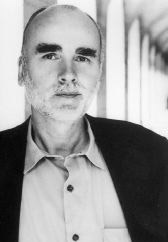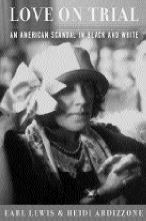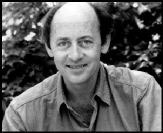SEATTLE ARTS & LECTURES’ 2002 POETRY SERIES
All events at A Contemporary Theatre, Allen Theatre, 700 Union, 621-2230, $45/four-part series, $14/individual readings first poet: Cornelius Eady 7:30 p.m. Mon., Feb. 25
WATCHING THE AIRY moves of a world-class snowboarder, we sometimes feel a vicarious surge of bodily freedom. Hearing poems can do this for the mind, and the liberation can be more lasting. The roster of authors coming to read in Seattle Arts & Lectures’ 2002 Poetry Series practically guarantees that audiences will be released from their usual ways of seeing things.
On Feb. 25 Cornelius Eady (You Don’t Miss Your Water, Autobiography of a Jukebox) will turn some familiar images upside down and inside out. In Eady’s latest book, Brutal Imagination, the mythical black carjacker whom Susan Smith accused of kidnapping her children speaks out. He watches helplessly as Smith sends her vehicle into John D. Long Lake with her sons strapped in their seats. He listens to her tearful lies to the sheriff, rides with search parties, and sees himself sketched and discussed on TV.
For Eady, the black male is not an Invisible but an Invented Man, dreamed up by whites like Charles Stuart of Boston, who killed his pregnant wife and blamed an imaginary black mugger. Inventive minds have also produced Stepin Fetchit, Buckwheat, and Aunt Jemima, of course, and Eady gives them all voices. His genius lies in the abrasive, touching, humorous bonds he creates between each white imagination and its black figment. New Yorkers are crowding into the Manhattan theater that currently features a play based on Brutal Imagination, and no wonder.
If Robert Creeley at 75 is one of the grayest eminences among American poets, he’s also one of the grooviest. A founding member of the Black Mountain School of Poetry in the 1950s, he’s still writing poems, and they still sizzle and soar. His preface to his Selected Poems declares that poetry is not “a scrunched limit of possibilities.” He praises the freedoms of writing and reading (nobody owns words, he says—they’re made of air!), and his poetry sings of “that echoing, resonant edge/of what it knows it knows”: desire and loss, work, friendship, the kitchen and bedroom and tavern and road. Creeley’s lines wind unpredictably down the page, releasing smoke, the bending grass, or a summer day into imagination’s space. But he’s more than a deft verse driver: His language is so transparent it virtually disappears under the eye that reads it, leaving the essence of an experience to vibrate on the nerves. A Creeley book can feel quiet when it’s open on your lap, but his public readings rock audiences. He appears March 11.
HEATHER MCHUGH (March 25) is the Milliman Distinguished Writer-in-Residence at the UW and was recently elected a chancellor of the Academy of American Poets. Her books include the National Book Award finalist Hinge & Sign and Father of the Predicaments. McHugh’s life work is to play seriously with the predicaments of being: a mother-in-law’s death, a book, sex, reflections shivering on a pond’s breezy surface.
Her words make fragile, temporary houses that rise, tremble, and fall. She can’t resist an anagram or a pun. About running and stay- ing still she asks, “what’s bolted. . . . And what is fast?” About herself: “Too volatile, am I? too voluble? too much a word-person?/I blame the soup: I’m a primordially/stirred person.” Her poems are dazzling but companionable, too. She leads us by the hand into her helpless sense of wonder at what words do and what being alive feels like.
Jorie Graham’s work feels more solitary than McHugh’s, and there’s more razzle in the dazzle of her verbal fireworks, which sparkle on and on. But she’s equally a philosopher of the everyday, and a MacArthur “genius” besides. Her books include The Dream of the Unified Field and The Errancy, and her newest collection, Never, will first be made available at her April 1 reading. The mind behind Graham’s poems is calisthenic, marathonic, Olympic—an Iron-Manic contest with reality and language that crosses indeterminate finish lines, leaving the reader with “scorched comprehension,” “merciless ignorance,” or sometimes just the “talk, thrashing, wrinkling” that she writes about.
Sometimes her syntax fires like synapses. Sometimes it feels right to take her labyrinthine poems the way Robert Frost said to look at a star that fades when stared at. If we focus on a spot beside it, the light will swim into the eye and, as Graham words it, “silver into place.” It’s even better to hear Graham read her work aloud. Her most baffling poems suddenly grow clear, and watching her is a kick: She’s gorgeous, and she rakes her long hair from side to side as if trying to get out from under her own mental energy.








